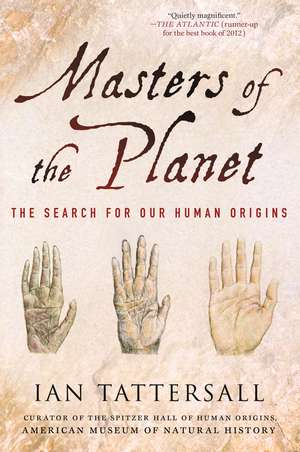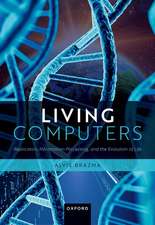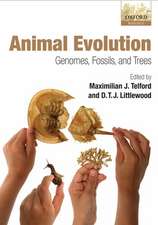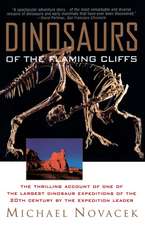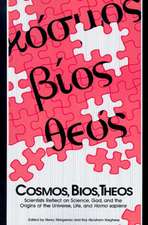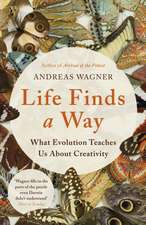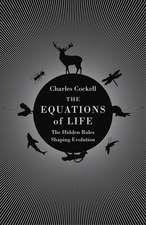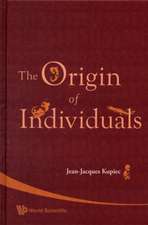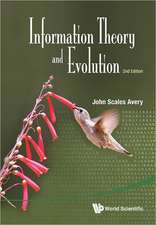Masters of the Planet: Macmillan Science
Autor Tattersall Ianen Limba Engleză Paperback – 4 iun 2013
Din seria Macmillan Science
-
 Preț: 143.08 lei
Preț: 143.08 lei - 8%
 Preț: 444.97 lei
Preț: 444.97 lei -
 Preț: 298.22 lei
Preț: 298.22 lei -
 Preț: 206.51 lei
Preț: 206.51 lei - 5%
 Preț: 132.99 lei
Preț: 132.99 lei -
 Preț: 179.45 lei
Preț: 179.45 lei -
 Preț: 331.00 lei
Preț: 331.00 lei -
 Preț: 144.97 lei
Preț: 144.97 lei -
 Preț: 145.13 lei
Preț: 145.13 lei -
 Preț: 155.66 lei
Preț: 155.66 lei -
 Preț: 148.58 lei
Preț: 148.58 lei -
 Preț: 291.22 lei
Preț: 291.22 lei -
 Preț: 106.59 lei
Preț: 106.59 lei -
 Preț: 223.23 lei
Preț: 223.23 lei -
 Preț: 111.33 lei
Preț: 111.33 lei -
 Preț: 84.19 lei
Preț: 84.19 lei -
 Preț: 103.83 lei
Preț: 103.83 lei -
 Preț: 383.50 lei
Preț: 383.50 lei -
 Preț: 377.18 lei
Preț: 377.18 lei -
 Preț: 220.33 lei
Preț: 220.33 lei -
 Preț: 317.52 lei
Preț: 317.52 lei -
 Preț: 331.16 lei
Preț: 331.16 lei -
 Preț: 316.53 lei
Preț: 316.53 lei -
 Preț: 353.02 lei
Preț: 353.02 lei -
 Preț: 202.26 lei
Preț: 202.26 lei -
 Preț: 386.61 lei
Preț: 386.61 lei -
 Preț: 385.84 lei
Preț: 385.84 lei - 5%
 Preț: 368.37 lei
Preț: 368.37 lei -
 Preț: 383.93 lei
Preț: 383.93 lei - 15%
 Preț: 694.04 lei
Preț: 694.04 lei -
 Preț: 107.59 lei
Preț: 107.59 lei -
 Preț: 204.11 lei
Preț: 204.11 lei -
 Preț: 102.44 lei
Preț: 102.44 lei -
 Preț: 133.12 lei
Preț: 133.12 lei
Preț: 104.08 lei
Nou
Puncte Express: 156
Preț estimativ în valută:
19.92€ • 20.85$ • 16.48£
19.92€ • 20.85$ • 16.48£
Carte disponibilă
Livrare economică 17-31 martie
Preluare comenzi: 021 569.72.76
Specificații
ISBN-13: 9781137278302
ISBN-10: 1137278307
Pagini: 266
Ilustrații: Includes 15 b&w photos throughout
Dimensiuni: 165 x 227 x 18 mm
Greutate: 0.31 kg
Editura: Palgrave MacMillan
Seria Macmillan Science
Locul publicării:Basingstoke, United Kingdom
ISBN-10: 1137278307
Pagini: 266
Ilustrații: Includes 15 b&w photos throughout
Dimensiuni: 165 x 227 x 18 mm
Greutate: 0.31 kg
Editura: Palgrave MacMillan
Seria Macmillan Science
Locul publicării:Basingstoke, United Kingdom
Descriere
Fifty thousand years ago - merely a blip in evolutionary time - our Homo sapiens ancestors were competing for existence with several other human species, just as their precursors had done for millions of years. Yet something about our species distinguished it from the pack, and ultimately led to its survival while the rest became extinct. Just what was it that allowed Homo sapiens to become masters of the planet? Ian Tattersall, curator emeritus at the American Museum of Natural History, takes us deep into the fossil record to uncover what made humans so special. Surveying a vast field from initial bipedality to language and intelligence, Tattersall argues that Homo sapiens acquired a winning combination of traits that was not the result of long-term evolutionary refinement. Instead, the final result emerged quickly, shocking our world and changing it forever.
Recenzii
"…succinct and masterful …Tattersall takes us from 6 million years ago in Africa's Rift Valley to the present day. On the way, he brilliantly describes humanity's cousins and rivals, from apes to the other hominins that competed with H. sapiens as, tens of thousands of years ago, our ancestors made the cognitive leap to symbolic thought…' - Nature
"...an authoritative snapshot of the ongoing struggle to understand our evolutionary past...Tattersall does an excellent job of showing how we can sketch the story of our origins from the new precious fossil remains, while at the same time not glossing over our ignorance of such crucial details." -Stephen Cave, The Financial Times
"Tattersall is no slouch in the storytelling department, but his narrative emphasizes the necessarily fragmentary nature of the fossil record and the provisional nature of what we can safely conclude from it . . .[His] account highlights the major advances in paleoanthropology that have been made in the last decade or two." - Natural History magazine
"An efficient survey of 7 million years of evolutionary development and two centuries of evolutionary thought . . . In deft combinations of authority and caution, expertise and wit, Tattersall invites the lay reader to the party. Throughout, he remains grounded in the salient details culled from archaeology, anatomy, genetics, primatology, nutrition and social science." - The Cleveland Plain Dealer
"Asuperb overview of how our species developed (a long process) and how we grew smart enough to dominate the planet . . . Keeping a critical eye on the evidence and a skeptical one on theories, Tattersall confirms his status among world anthropologists by delivering a superior popular explanation of human origins." - Kirkus Reviews starred review
"A concise history of how humans became humans . . . Tattersall moves through the complex fossil records effortlessly and with a welcome sense of wonder. He also consistently conveys a deep knowledge of his subject . . . Tattersall's combination of erudition and a conversational style make this is an excellent primer on human evolution." - Publishers Weekly
"This is a book I will be recommending to anyone who wants a good overview of evolution. This book puts the new discoveries in their proper sequence and perspective. It is an excellent work." -Jean Auel, author of The Clan of the Cave Bear, and the rest of Earth's Children books
"We all think we know the story: first we evolved to walk upright, then use tools, then agriculture, language, and us - - an inexorable linear progression from ape to human. But Ian Tattersall introduces us to several different human-like precursors, all alive at the same time, as recently as 50,000 years ago - just barely before the period we humans chauvinistically refer to as 'history'. So it's no longer straightforward: beasts like us emerged several times within the past hundred thousand years, some of them distinct species. Some were the first to think like we do: in symbols and abstractions; those were our forebears. But while they were alive, these multiple different humanoids may have known about each other; interacted; fought; lived together or apart; possibly even bred. It turns out that our lineage is anything but linear; Tattersall demolishes the versions we were once taught, and lays out the remarkable new history of our diverse origins for the first time." - Richard Granger, author of Big Brain
"Are you ready for a 3.5 billion year stroll down the path of life's origins to the present. Ian Tattersall takes you by the hand and covers the highlights like few are capable of doing. The continuities and discontinuities reveal insights on why we humans are the masters of the planet. A must read." - Mike Gazzaniga, author of Human: The Science Behind What Makes Your Brain Unique
"This [book] is excellent . . . Among other things, and very importantly, it is a very good read." - Colin Tudge, author of The Link: Uncovering Our Earliest Ancestor
"For almost 40 years, Ian Tattersall has been one of our leaders in the field of human evolution. Mastersof the Planet is a stunning culmination of a career in science: a brilliant and engaging account that illuminates and inspires. Read Tattersall and you will not see yourself, let alone our entire species, in the same way again." - Neil Shubin, author of Your Inner Fish
"This is a book full of wisdom: the distillation of a lifetime's experience combined with finely honed critical faculties. Tattersall is a captivating and surefooted guide through the ranks of hominids, over several million years, in search of the origins of our uniquely symbolic mind. He ranges widely across evidence from DNA sequences and molecular forensics to skeletal morphology and ancient artifacts, never shirking the telling detail, never lacking a finely judged opinion, yet always making the science beautifully clear. The best guide to human origins that I have read." - Nick Lane, author of Life Ascending and Oxygen
"A guide for the perplexed student of human origins...Tattersall weaves a history of palaeoanthropology into the text, showing that though fossils may provide the bulk of the evidence for human origins, few of the details are set in stone." - New Scientist
"...an authoritative snapshot of the ongoing struggle to understand our evolutionary past...Tattersall does an excellent job of showing how we can sketch the story of our origins from the new precious fossil remains, while at the same time not glossing over our ignorance of such crucial details." -Stephen Cave, The Financial Times
"Tattersall is no slouch in the storytelling department, but his narrative emphasizes the necessarily fragmentary nature of the fossil record and the provisional nature of what we can safely conclude from it . . .[His] account highlights the major advances in paleoanthropology that have been made in the last decade or two." - Natural History magazine
"An efficient survey of 7 million years of evolutionary development and two centuries of evolutionary thought . . . In deft combinations of authority and caution, expertise and wit, Tattersall invites the lay reader to the party. Throughout, he remains grounded in the salient details culled from archaeology, anatomy, genetics, primatology, nutrition and social science." - The Cleveland Plain Dealer
"Asuperb overview of how our species developed (a long process) and how we grew smart enough to dominate the planet . . . Keeping a critical eye on the evidence and a skeptical one on theories, Tattersall confirms his status among world anthropologists by delivering a superior popular explanation of human origins." - Kirkus Reviews starred review
"A concise history of how humans became humans . . . Tattersall moves through the complex fossil records effortlessly and with a welcome sense of wonder. He also consistently conveys a deep knowledge of his subject . . . Tattersall's combination of erudition and a conversational style make this is an excellent primer on human evolution." - Publishers Weekly
"This is a book I will be recommending to anyone who wants a good overview of evolution. This book puts the new discoveries in their proper sequence and perspective. It is an excellent work." -Jean Auel, author of The Clan of the Cave Bear, and the rest of Earth's Children books
"We all think we know the story: first we evolved to walk upright, then use tools, then agriculture, language, and us - - an inexorable linear progression from ape to human. But Ian Tattersall introduces us to several different human-like precursors, all alive at the same time, as recently as 50,000 years ago - just barely before the period we humans chauvinistically refer to as 'history'. So it's no longer straightforward: beasts like us emerged several times within the past hundred thousand years, some of them distinct species. Some were the first to think like we do: in symbols and abstractions; those were our forebears. But while they were alive, these multiple different humanoids may have known about each other; interacted; fought; lived together or apart; possibly even bred. It turns out that our lineage is anything but linear; Tattersall demolishes the versions we were once taught, and lays out the remarkable new history of our diverse origins for the first time." - Richard Granger, author of Big Brain
"Are you ready for a 3.5 billion year stroll down the path of life's origins to the present. Ian Tattersall takes you by the hand and covers the highlights like few are capable of doing. The continuities and discontinuities reveal insights on why we humans are the masters of the planet. A must read." - Mike Gazzaniga, author of Human: The Science Behind What Makes Your Brain Unique
"This [book] is excellent . . . Among other things, and very importantly, it is a very good read." - Colin Tudge, author of The Link: Uncovering Our Earliest Ancestor
"For almost 40 years, Ian Tattersall has been one of our leaders in the field of human evolution. Mastersof the Planet is a stunning culmination of a career in science: a brilliant and engaging account that illuminates and inspires. Read Tattersall and you will not see yourself, let alone our entire species, in the same way again." - Neil Shubin, author of Your Inner Fish
"This is a book full of wisdom: the distillation of a lifetime's experience combined with finely honed critical faculties. Tattersall is a captivating and surefooted guide through the ranks of hominids, over several million years, in search of the origins of our uniquely symbolic mind. He ranges widely across evidence from DNA sequences and molecular forensics to skeletal morphology and ancient artifacts, never shirking the telling detail, never lacking a finely judged opinion, yet always making the science beautifully clear. The best guide to human origins that I have read." - Nick Lane, author of Life Ascending and Oxygen
"A guide for the perplexed student of human origins...Tattersall weaves a history of palaeoanthropology into the text, showing that though fossils may provide the bulk of the evidence for human origins, few of the details are set in stone." - New Scientist
Notă biografică
Ian Tattersall, PhD, is a curator in the Division of Anthropology of the American Museum of Natural History in New York City, where he co-curates the Spitzer Hall of Human Origins. He is the acknowledged leader of the human fossil record, and has won several awards, including the Institute of Human Origins Lifetime Achievement Award. Tattersall has appeared on Charlie Rose and NPR's Science Friday, and has written for Scientific American and Archaeology. He's been widely cited by the media, including The New York Times, BBC, MSNBC, and National Geographic. Tattersall is the author of Becoming Human, among others. He lives in New York City.
Caracteristici
Starting with a starred Kirkus review, Masters of the Planet had great publicity, including author interviews on WNYC's Leonard Lopate and NPR's Science Friday, reviews in the The Washington Post and The Wall Street Journal, and events at the American Museum of Natural History.
Only four months after pub, Masters of the Planet is netting nearly 10,000 combined hardcover and ebook
The American Museum of Natural History is wildly popular with tourists, receiving four million visitors annually. The Hall of Human Origins, easily the most trafficked exhibit, receives 40,000 visitors per week
Only four months after pub, Masters of the Planet is netting nearly 10,000 combined hardcover and ebook
The American Museum of Natural History is wildly popular with tourists, receiving four million visitors annually. The Hall of Human Origins, easily the most trafficked exhibit, receives 40,000 visitors per week
